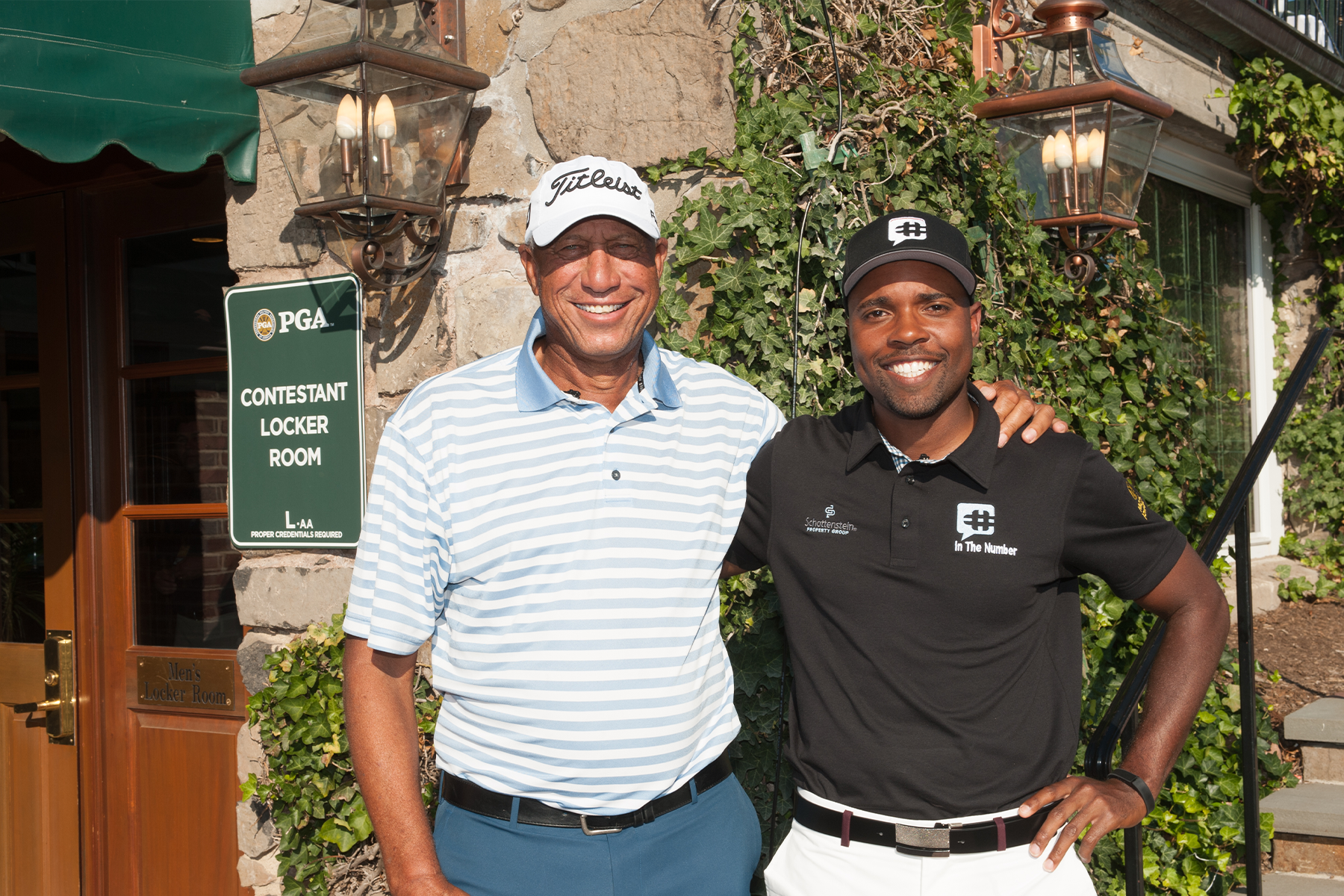Game Changers
Celebrating Black History Month: The Pioneers - Tom Woodard, PGA
By Michael R. Abramowitz
Published on

Tom Woodard (left) and Wyatt Worthington II (right) pose together at the 2016 PGA Championship at Baltusrol Golf Club. Photo by Montana Pritchard/The PGA of America
Editor's Note: The story below originally ran in the February 2021 issue of PGA Magazine in celebration of Black History Month.
Imagine blazing a new trail, yet not truly realizing the impact and significance of the path you paved. Imagine pursuing your passion for the pure love of the game, while charting the course of history.
For PGA Members Tom Woodard and Maulana Dotch, the historic milestones they achieved were not obvious.
In 1991, at Crooked Stick Golf Club in Carmel, Indiana, Woodard quietly became the first Black PGA Club Professional to compete in the PGA Championship. It was one year after the uproar of Shoal Creek. It was also the week where the legend of John Daly was born. And it coincided with the 75th Anniversary of the PGA of America.
A full generation later, Woodard was surprised to learn that Wyatt Worthington was set to become the second Black PGA Club Professional to compete in the PGA Championship, after finishing in the Top 20 at the 2016 PGA Professional Championship.
“Pioneer! Pioneer!” Worthington shouted as he and Woodard met for the first time at Baltusrol Golf Club, in Springfield, New Jersey, some 25 years after Crooked Stick, and during a year that commemorated the PGA’s Centennial.
“It caught me off guard,” admitted Woodard, who was elected to PGA Membership in 1989. “When Wyatt said, ‘Pioneer,’ it made me think about it...In retrospect, it made me think back on my career.”
Woodard was used to breaking barriers and a lifetime of firsts. His family moved from Midland, Texas to Denver when he was 10. It was the 1960s, and he was only permitted to play on segregated courses. Luckily, he lived two blocks away from City Park Golf Course, where Woodard honed his game.
As a kid, Woodard was inspired by PGA Member Bud Bruggeman, who encouraged him to make the game his career. “You mean you can make a living doing that?” explained Woodard. “How many kids at 11 years old know what they want to do with their life?”
Building his golf game on a segregated junior circuit and as a caddy, Woodard became one of the first African-Americans to earn a full-ride Evans Scholarship. He walked on at the University of Colorado as the first Black man to play on the golf team, and the first to earn Honorable Mention All-America and All-Big 8 accolades.
Woodard earned his PGA Tour card twice and also competed on the Asian Tour. In addition to the PGA Championship, he played in two U.S. Opens.
Yet, the money he earned in the 1980s and 1990s wasn’t near enough. Woodard found himself riding in a van to Tour events, never fully giving his body a rest.
At the 1982 L.A. Open, he played a practice round and enjoyed dinner with Charlie Sifford, who told stories of not being able to play on Tour when he was Woodard’s age, due to the PGA’s notorious Caucasian Clause. When Sifford finally could play, he rode with several other players to each stop in a car packed with luggage. The player who won money the previous week covered their hotel bill, assuming they could find a place that allowed Black people to stay.
“After hearing Charlie Sifford’s story, imagine how big I felt,” said Woodard. “It was the most memorable round of golf in my life.”
Woodard, a member of three Halls of Fame, eventually became a PGA Club Professional. He built three junior courses, two junior clubs and initiated the now-thriving First Tee Chapter in Denver.
He believes now is the time to provide opportunity.
“The next step is to get women and people of color at the top management positions,” stated Woodard.

